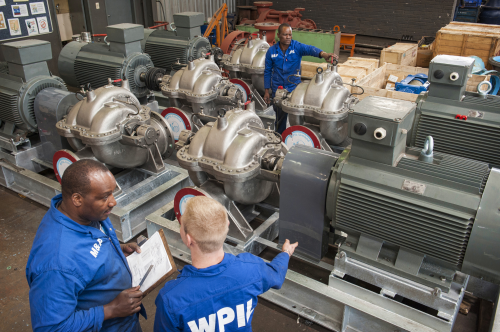
When a large abalone farm near Gansbaai experienced continuous and expensive corrosion and abrasion in the cast iron pumps installed to transfer seawater to its growing blocks, they turned to Gauteng-based APE Pumps for help.
The original pumps, supplied by another manufacturer, were installed at Roman Bay Sea Farm in 2009 as part of an expansion programme to provide additional capacity for abalone production. However, low temperatures and the salinity of the seawater resulted in rapid and continuous pump corrosion.
Split-case solution
As a solution to the problem, Gauteng-based APE Pumps proposed five identical split-case machines cast entirely in super duplex stainless steel, which is characterised by exceptional strength and very high resistance to corrosion.
The pumps, each with a duty of 1250 m3 per hour (347 lps), were delivered to Gansbaai and installed in May of this year to draw seawater under negative suction head from the seawater intake gully.
They have proved more efficient than the machines replaced, consuming less power while they transfer seawater from the ocean into holding tanks from where it is fed by gravity through the farm and then back into the sea.
Natural environment
This seawater accurately simulates the natural environment needed by the various abalone life-cycles of breeding and hatching, larvae development, settling, weaning and maturing. Passing continuously through Roman Bay’s rearing tanks, most of it directed to growing blocks where the maturing phase demands millions of litres of seawater each day.
APE Pumps reports that another coastal aquaculture enterprise is evaluating machines similar to those now performing successfully at Roman Bay Sea Farm.


